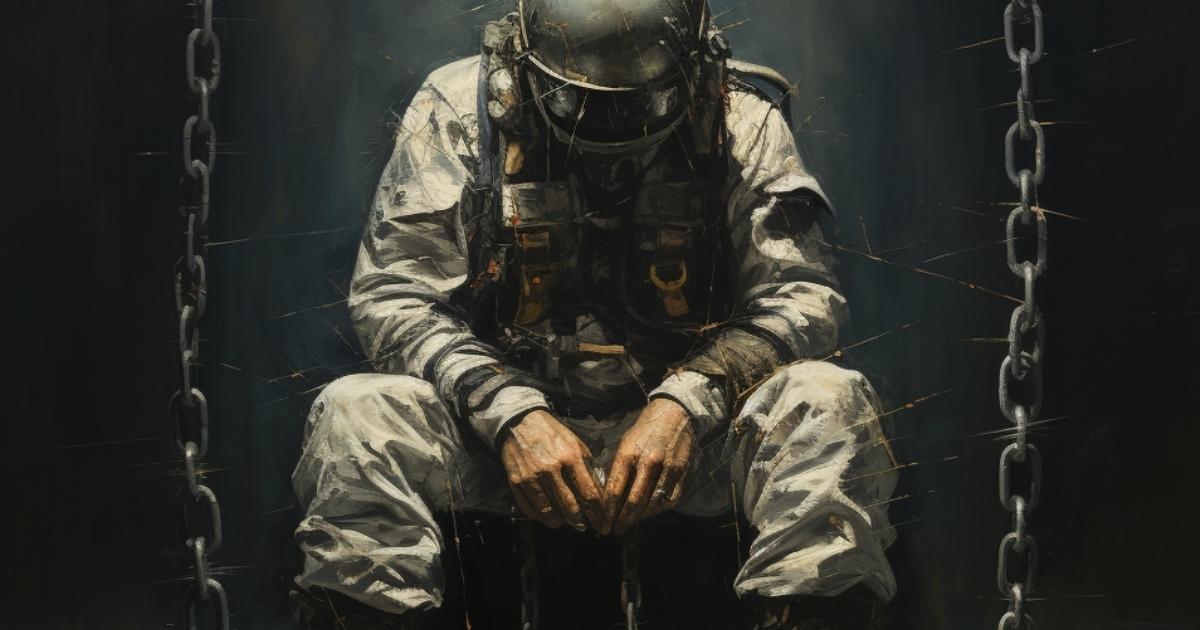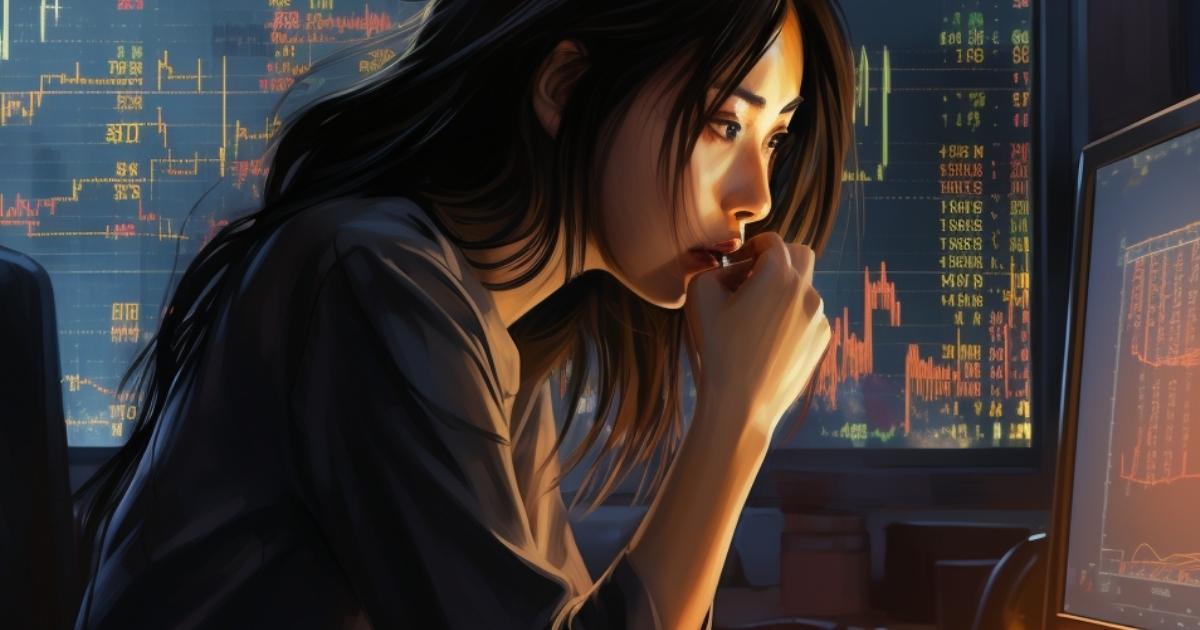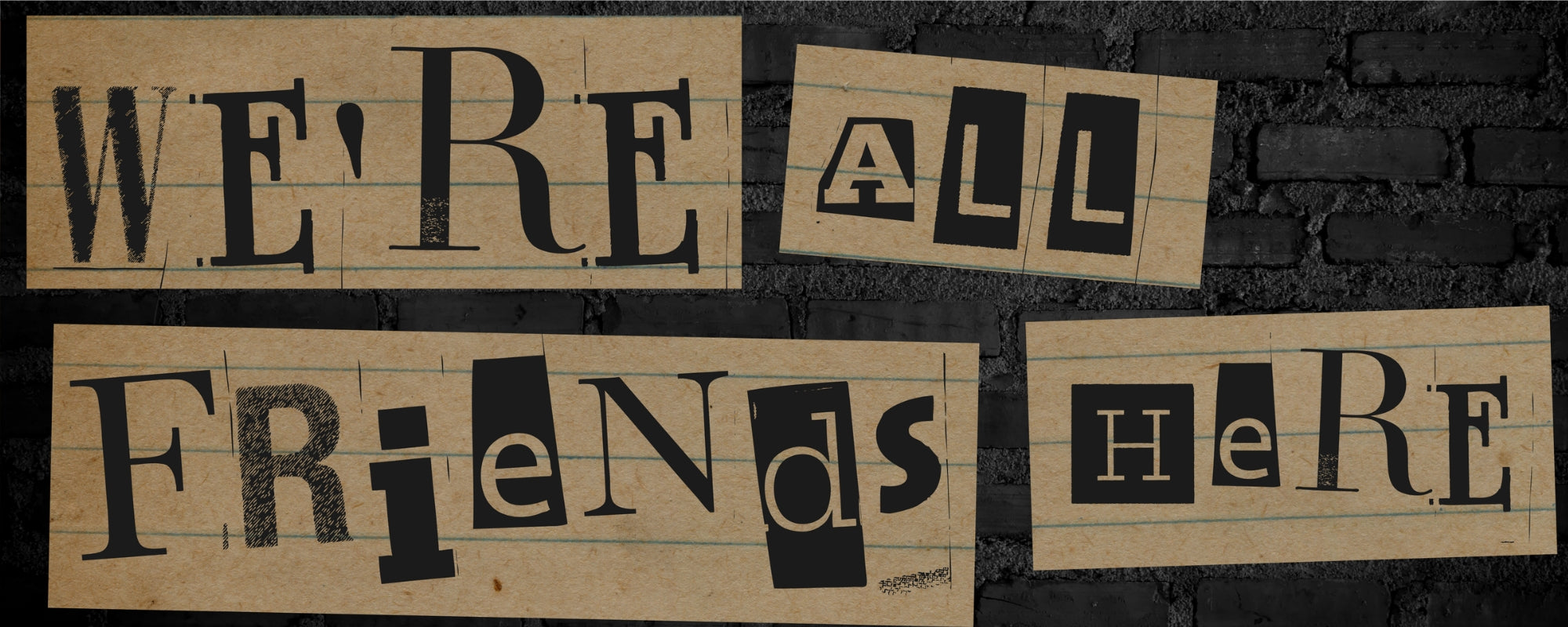
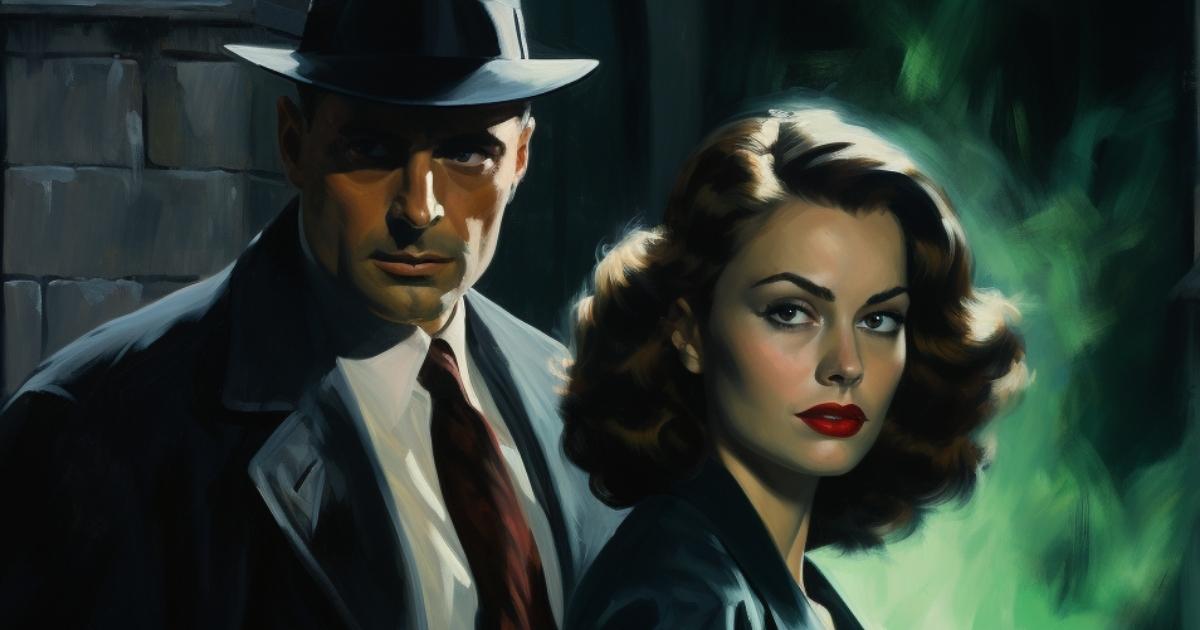
Reprint Story: We're All Friends Here
By Michelle Ann King
Originally Published in The Sockdolager
I lean against the back wall of the doctor’s office while the camera pans around me, getting good shots of the carefully placed symbols of death and ruin: broken bottles in the dumpster, rotting fruit in the gutter, and fly-blown roadkill appearing and disappearing under the wheels of passing trucks. The set designer’s got a great eye.
This morning, we’re working on the scenes where my character, Kip, gets his fatal diagnosis. The “inciting incident,” in script-speak.
The first thing he does, after the grave-faced doctor shows him backlit X-rays of his lungs marred by clouds of cancerous white, is go outside and light up a cigarette. That’s the kind of guy he is at the start of the film: anti-authoritarian, rebellious, obstinate. Full of piss and vinegar, as the old saying used to go.
He learns better, of course—that’s the point of telling this story—but in the beginning, he’s an unrepentant bad guy, a corrupt cop who moonlights as a gangland enforcer, and who likes his work.
When I was cast, a couple of the producers wanted me to get upgraded musculature, but I said no. I wanted to do it the old-fashioned way, because the film is set in pre-Alliance times, and if you wanted strength in those days, you had to work for it. And despite what people say, it’s a different look. My natural muscles aren’t smooth and sculpted, they’re hard, uneven, and ropy. I like it. It might not be as aesthetically pleasing, but it looks more real. There are still a few of us who think that matters.
I suck on my prop cigarette and stare at the smear of blood and fur on the road in front of me. I wonder if it’s supposed to be a certain kind of animal—something wild, like a raccoon, or a coyote, or whatever used to live in places like this? Or a pet, maybe—someone’s domestic cat or dog that got loose and then got unlucky. It used to happen; everything was organic, back then.
I’m just about old enough to remember those days. If I try hard, I can call up vague, blurry images of myself as a boy, running through the woods with a squat black dog at my side. Or was that just another movie I watched? When it’s that long ago, memories of fiction can seem just as real.
I take a deep breath, trying to shake off the mood and get my head back in the scene, but Maxine, the director, says, “No, Deron, that was great, it’s exactly what we want. The nostalgia of a dying man, wondering if he fucked up his life. Perfect.”
I decide to take that as a compliment, and we move on.
In the old book our film’s based on, Kip has a different reaction: he becomes more determined than ever to go out swinging, and the story ends with him getting killed during a huge shootout with the police in a third act packed with gunfire and explosions. Violent nihilism was popular in the twenty-first century.
Modern audiences, however, prefer existential analysis to anti-heroes. Some sacrifices are necessary, we all know that, but nobody wants to see wholesale death and destruction anymore. We’ve had enough of it.
So, in our adaptation, Kip’s going to deal with things in a much more useful and productive way. The focus isn’t on his rebellious nature and the violent acts he performs, but on his character transformation and the lessons he learns. (Chief among them: 1. Accept your fate with dignity; 2. A pragmatic decision is better than an emotional one; 3. Don’t fight the system because it’s there for your benefit.)
Those are very important lessons to learn. Important messages for stories to send. We all know that, too.
📽
The action kicks off when Kip’s boss, Elyse—his gang boss, not his police boss—gives him a job. He’s to go to a warehouse on the docks, where a shipment of drugs is coming in. Under normal circumstances, they’d be coming to Elyse and there wouldn’t be a problem, but her supplier has decided to cut a deal with someone else. That is a problem, so Kip—pretending to act on an anonymous tip from a concerned citizen—will check out the warehouse.
There will be a firefight, and all but one of the gang members will be killed. The survivor will be arrested and taken to the station, where he or she will be encouraged to confess everything they know, so that Kip and his colleagues can close down this operation and restore the rightful rule of law. And eliminate Elyse’s rivals, of course, but he’ll keep that part to himself.
Elyse outlines this plan upstairs in her bar one night, after they’ve finished having sex. Given that it involves taking out an unknown number of armed gangsters without getting killed himself, Kip doesn’t know whether to feel pleased at Elyse’s confidence in his abilities or disturbed about her lack of concern for his safety.
Without knowing why he does it, he asks her if she loves him. Elyse doesn’t say anything, just looks at him as if he’s asked whether she believes in Father Christmas.
Kip presses the heel of his hand into his chest and wonders whether the creeping rot in his lungs is making its way into his brain, too.
He shivers briefly, then gets up and goes to get on with his job.
📽
The set is drafty and cold today, the exterior constantly gray and drizzly. We’ve managed to get a temporary weather license, so that we can maintain the right atmospheric mood. These early scenes, where Kip’s an outlaw fighting the system, are all shot in dim light and leached of color, with odd camera angles and discordant music. The message—this is wrong—isn’t particularly subtle, but it’s effective. The footage looks good so far, and Maxine’s pleased. She’s confident our Allies will be happy.
Everybody smiles and nods when they hear this. It’s good news. Everything is so much more pleasant when they’re happy.
📽
At the station, Kip gets an unpleasant surprise: a visit from Internal Affairs Division. He plays wide-eyed innocence as best he can during the interview, and it’s all smiles and “thanks for your help,” and “just routine,” but he knows better.
“I’m sure we’ll talk again,” the IAD woman says, when they wrap it up. She says it with a smile, as if it’s simply an overture of friendship, but her real message is clear:
We found out.
We will always find out.
Kip goes to Elyse and tells her everything. He’s not quite sure what he’s looking for—advice? Support? A bag full of cash, a fake passport, and a plane ticket to Argentina?—but what he gets is his second nasty surprise of the day.
She’s had a report from his doctor—which in itself doesn’t surprise him, because it seems like everyone in this entire town reports to Elyse—but instead of sympathy and commiserations, he gets cut loose. With physical deterioration and a limited lifespan, he’s no longer an asset to her. Add in the IAD investigation, and he’s a liability. From here on, he’s on his own.
He thinks, for a single wild second, about trying to trade on their relationship, such as it is. Thinks about trying to convince Elyse she owes him more than this. But he remembers that scornful, disappointed look—no, I don’t fucking believe in Father Christmas—and in the same moment, he realizes he is getting special consideration. She wouldn’t give most people the chance to run.
He goes back to his apartment, which he knows is a mistake the minute he opens the door. They’re waiting inside, sitting casually on his sofa and drinking his coffee. He wishes them well of it; coffee started giving him indigestion a while ago, and the grinds left in the jar must be old and foul.
“Told you we’d talk again,” the woman says, still with that amiable smile.
Kip shoves his hands in his pockets and shrugs. “Sorry, Lieutenant Bryce, I really haven’t got anything else to say.”
She nods and keeps right on smiling, like she believes him. Like she doesn’t notice her partner unholstering his gun. “Call me Lovina, Kip. We’re all friends here, right?” She pats the sofa next to her. “Why don’t you come and sit down?”
Kip’s still got his guns—both his service weapon and his unregistered backup—and his hand makes a microscopic twitch, but he doesn’t try to draw either. He can’t win; in fact, he realizes now that he lost the game long before he even knew he was playing it.
He puts emotion aside and makes the sensible, pragmatic decision. “Sure,” he says, and does as he’s told.
📽
We shoot the apartment scene fifty-three times, and Maxine’s still not satisfied with it. “It’s pivotal,” she says. “This is the first time it occurs to Kip that his old lifestyle, his old way of thinking, is wrong. He’s not giving up here. He’s not being beaten. He’s changing. He can see Lovina Bryce could be a good friend to him, and he wants to listen to her. He wants to give her a chance. We need to see that.”
She’s not wrong, of course—it’s right there in the script. I have it memorized:
KIP’S hand moves—starts to go for his GUN—then freezes. CLOSE-UP on KIP’s face: it would be a mistake, and he knows it. This isn’t what he wants.
KIP: Sure.
Decision made, he relaxes and nods. We can see the relief on his face.
The trouble is, from my perspective—from the inside of Kip’s head—it does feel wrong. Kip’s not relieved, he’s pissed off. Lovina Bryce is the enemy, and he doesn’t want to sit down and have a nice friendly chat. He wants to shoot her in the face.
We take five, and I go back over the script. Kip is relieved, I tell myself. He doesn’t want to fight anymore.
I remind myself this is a good, sensible choice. Fighting back is a bad idea. It doesn’t work. Kip knows that, I know that. Everybody knows that. Don’t fight the system. It’s there for your benefit.
“Hey,” a voice says, startling me. I look up and see Shae, who plays Lovina, holding out a cup of coffee. “Take it. You’ll want it.”
There’s an unusual aroma swirling out of the cup. Something I haven’t smelled in a long while.
I raise my eyebrows, and Shae grins. “Cognac.”
I realize my hands have come up in a warding-off gesture, and I drop them back down to my sides. I want to look around to see if anyone’s watching, but I resist the urge. When you play a lot of criminals, you learn what makes you look guilty.
“Alcohol’s a prohibited substance,” I say, idiotically. As if Shae’s going to have forgotten.
She’s still grinning, but her eyes have gone hard. “So?”
I stare at her some more. I don’t know how to answer that question; it’s too obvious to put into words. So, you don’t break the rules. You just don’t. We all know that.
I shake my head, in case she hasn’t got the message. “No, thanks.” I don’t know what she thinks she’s doing, but I don’t want any part in it.
“You fucking coward,” she snarls, and the fury in her voice is such a shock that it physically backs me up a step. She moves with me, closing the distance again, and for a second, I’m convinced she’s readying herself to throw the coffee at me, spit on me, or punch me in the face. Maybe all three.
It’s an astonishing transformation. As Lovina, she’s the personification of smoothness; all easy smiles, bland expressions, and conciliatory tones. But the look in her eyes right now is feral, as if she’s imagining ripping out my throat with her teeth. And thinking about how much she’d enjoy it.
“Hey,” I say. Or, I try to—what actually comes out is more of a squeak than a word.
And just like that, it’s gone. Shae steps back again, then drains the coffee cup herself. She gives me Lovina’s twinkling smile, says, “You should try being undignified some time. It’s fun,” and ambles away as if we’ve been doing nothing more than running lines or bitching about the quality of the catering.
I breathe out hard and wonder what the fuck just happened. And consider that, one way or another, Shae’s a better actor than I’ve given her credit for.
📽
Kip expects to be hauled back to the station to face the metaphorical firing squad, but it doesn’t happen.
“You don’t need the gun, Richman,” Lovina tells her partner. “We’re all friends here.” She smiles at Kip. “Right?”
He nods, warily.
Richman slips his piece back into the holster and starts making coffee for all three of them. He makes it too weak—it looks like dishwater and tastes about the same—but Kip thanks him and doesn’t complain. We’re all friends here.
It doesn’t take long for him to realize he’s not the endgame, not the big prize. Who they really want is Elyse.
“She’s a psychotic piece of shit,” Richman says. “Human garbage. You know that, right?”
Lovina shoots him a look. “Hey,” she says, in a tone that’s half disappointment and half warning.
At first, Kip thinks she’s objecting to the use of language, but when she says, “Of course Kip knows that,” he realizes she was, in her own way, defending his honor. It makes him smile.
Lovina seems to take that as encouragement. “If she knew you were here, talking to us, what would happen? What would she do?”
Kip doesn’t bother responding, since they both know the answer. Lovina nods anyway, as if he said it out loud. “Exactly. She doesn’t care about you, Kip. She never did. As far as she’s concerned, she doesn’t owe you anything. You were just something she used, like a knife or a gun. A tool for a job.”
This time she waits, as if she’s expecting him to say something. Kip shrugs. Is any of that supposed to be news? “Way of the world,” he says.
“Her world, maybe. But not ours. And it doesn’t have to be yours. We can help you. Protect you.” Lovina leans forward and lightly touches his knee. “You don’t have to do time for this, Kip. You don’t even have to lose your job. We can say you were one of ours all along—that you’ve been undercover. That everything you’ve done was sanctioned as part of the operation. It’ll be washed clean, all of it—all the lies and the violence and the corruption. Don’t you want that, Kip? Don’t you want to feel clean again?”
Kip thinks about the shit growing inside his lungs and lets out a single hard bark of laughter. “Not going to happen.”
Now she turns the disappointed/warning tone on him. “Come now, don’t be like that. We can fix this, if you’ll let us. If you’ll work with us. You could get it all back, Kip. You could be a hero.”
He laughs again, but this time it’s with genuine amusement. When he speaks, his voice is gentle. “I think your world’s a fantasy one, Lieutenant Bryce.”
She smiles and leans closer again, and her tone matches his. “Isn’t it still better than yours?”
Kip looks away and doesn’t answer for a long time. His instinctive reaction is to argue, but how can he? She’s right.
He gives a tiny shrug and falls back on the classic “Fuck you.”
Lovina smiles. She’s won already because you can’t beat the system. She knows that, and so does he. Everybody knows that.
📽
We’ve got a big gun battle today, which means a lot to coordinate, so everyone’s on set at the crack of who-knows-what o’clock. Time stops having any meaning when you’re in the middle of a shoot.
This is the sequence where Elyse, after discovering that Kip’s talking, proves Lovina right by trying to have him killed.
She and Kip are supposed to have a showdown, but the problem we’ve got is that Elyse—Cinzia Brantley—isn’t here. It’s not like her: Cinzia is an old pro with decades in the business, not a rookie who doesn’t know which way is up.
Calls are made, messages are left, runners are dispatched. But there’s no Cinzia.
Sujit, who plays Lovina’s partner Richman, chews on his nails until the makeup guy comes over and literally slaps his hands out of his mouth.
“People don’t just go missing,” Sujit says. “It doesn’t happen. It’s not like we’re in the…” he gestures at the set. “Dark ages. This sort of shit doesn’t happen.” His voice shakes, and his fingers creep to his mouth again.
I forget, sometimes, how young Sujit is. He hasn’t been through a single rejuvenation yet, which means he looks twenty-five because he is twenty-five. Bless, as Cinzia used to say.
He’s not wrong, though. Crime, violence, fights, murders—it doesn’t happen. What’s due to happen to Kip on this set would never happen to anyone in real life. People don’t attack, kidnap, and torture each other. The world simply doesn’t work that way. Not since the Alliance.
Shae stands a little apart from us, her arms folded. She looks at Sujit, and there’s contempt in the glance. She’s young, too, at least in comparison with me. Almost everyone is.
Rejuvenation seemed like such a miracle, at first. Such a gift. These days, it’s taken for granted like all the other miracles, but back then it felt like the answer to everything. Like it made all the sacrifices worthwhile.
“People don’t go missing,” Shae repeats, but there’s enough of a lilt on the end to make it a question.
Sujit frowns, not getting it. From his point of view, no. Sure, people go out and don’t come back, but they’re not missing. Everyone knows what happened to them; it isn’t a mystery.
I remember when my grandmother, Jana, took the walk. “The body’s one thing,” she said, flexing her hands and staring at the taut, unlined skin. “The mind, even. But it doesn’t work on the spirit, Deron. You can’t rejuvenate the soul.” At the time, I didn’t understand. I’m still not sure I do.
Cinzia didn’t take the walk, I am sure of that. Not voluntarily. She still loved her life—her family, her friends, her work. She particularly loved being crime-queen Elyse, getting to break the rules with a smile and a semi-automatic pistol.
And now I wonder: Did she love it too much? Is that why she was taken?
I shiver violently, then realize they’ve adjusted the weather settings for an exterior scene.
“We’re moving on,” Maxine tells us. “We’ll come back to the confrontation between Kip and Elyse when the part’s been recast.”
It feels like a betrayal. “She didn’t choose this,” I say. “Cinzia. She wouldn’t have wanted it. You have to know that.”
Maxine looks at me blankly, and I realize I’m being stupid. Cinzia’s gone, that’s all there is to it. It doesn’t make any difference whether it was her choice or not.
“Come on, people,” Maxine says. “We’re on a schedule here, and this is going to set us back. We can’t afford to waste any more time.”
She claps her hands, loud and fast. We do as we’re told and get moving.
I suppose, in a way, you could say Cinzia did choose it. We all did, a long time ago, when we made the Alliance. Because a pragmatic decision is better than an emotional one, and we accept our fate with dignity. We don’t fight the system—even when it takes our friends—because we know it’s there for our benefit.
Way of the world.
📽
“All right,” Kip says, “I’m in. I’ll help you.”
Lovina gives him one of her warm, genuine smiles. Then her expression turns serious. “It won’t be without risk. You know that, don’t you?”
Kip shrugs. He could say, “What choice have I got?” or “It doesn’t matter, I’m dying anyway,” but he wants to see that smile again, so what he says is, “I know. But nothing good ever got built without sacrifice, right?”
He gets the smile. “Absolutely,” she says.
📽
We all come in early the next day, too. Schedules to keep, and all that.
Shae brings a thermos of coffee and puts it on the catering table. “This is a memorial,” she says. “For Cinzia.”
She pours herself a cup and raises it. “To Cinzia Brantley. We’ll remember you.”
Everyone goes very still. When people are gone, they’re gone. You don’t talk about them. You try hard not to remember them.
Sujit looks at her as if she’s gone crazy. I think maybe she has. I think maybe we all went crazy a long time ago.
“I’ve got to, uh, you know,” he says, and disappears before bothering to make up an ending to the sentence. Everyone in earshot follows his lead and finds themselves urgently needed elsewhere.
“So,” I say, facing Shae. “You’re a rebel.”
She smiles. “You say that like it’s got a capital R.”
“Hasn’t it?”
The smile stays, but now there’s more sadness in it than humor. “Rebellion. Resistance. Revolution. Is that what you think this is about? Are you expecting me to try and recruit you for an underground movement? A sleeper cell? A secret army? Is that what you’re thinking?”
I shrug. I don’t know what I’m thinking.
She shakes her head, still smiling that sad smile. “I forget, sometimes, how old you are. No, Deron. There’s nothing like that. No resistance. No fighters. There’s no point trying to start a war you can’t win. We all know that.”
Her words surprise me, and I realize then that yes, some kind of recruiting speech was exactly what I’d expected.
“Then what?” I say, and it comes out harsher than I’d intended. “What are you trying to do? What do you want?”
She sighs. “I’m not even sure I know. Maybe nothing more than a bit of honesty, for once. I know how things work, we all do—so why don’t we acknowledge it, name it for what it is?” She shakes her head. “We call them our Allies, but that’s not what they are. We say people take the walk, as if they’ve gone out for a nice early morning stroll along the beach. But that’s sure as fuck not what happens.”
“You remind me of my grandmother,” I say, without thinking.
She blinks at me, then laughs. “There you go. Not usually something a woman likes to hear, but at least it was honest. See? Not so hard, is it?”
“No,” I say, and feel ashamed, because I’m lying. Because it’s easy to say Jana took the walk, or Cinzia’s gone now. Easy and civilized and painless. That’s the world we live in. That’s the world we like. We accept our fate with dignity.
Shae grips my arm. “People die, that’s the truth. We should acknowledge that—acknowledge them. We owe them that, don’t you think? It has to happen, I get that. It’s unavoidable. But that doesn’t mean it has to be ordinary.”
She fills a second cup from the thermos and holds it out to me. It’s thick and sweet, but it’s just coffee. Shae winks.
“To Cinzia Brantley,” I say, raising the cup. “She’s not gone, she’s dead. She’s dead because they took her, and they fed her to their babies, because that’s how the world works. That’s the price we pay. And we’re supposed to be okay with it.”
I drink my coffee, and I wish Shae had laced it today. Because I’m still doing it, aren’t I? Still hiding behind the pretty, sanitized language. Babies. Those things aren’t babies.
“But we’re not,” Shae says, and clinks her cup against mine. “Maybe we can’t do much, but at least we can do that. We can not be okay.”
One of the runners dashes up then. “Hey, Deron, Maxine wants you on set, man. Time to go.” He looks at me and frowns. “You okay?”
Shae starts laughing first, and I join in. The runner waits, with that patient, long-suffering expression they all have, until we get it out of our system.
“No,” I eventually tell him. “I’m not okay.” But I still put my coffee down and go with him.
📽
Kip gives Lovina Bryce everything. Everything he knows, everything he’s guessed, everything he secreted away for insurance or blackmail purposes.
“You did the right thing,” she says, looking proud.
“I know,” he manages, before a fit of coughing overtakes him.
It’s a bad one, and ends with him spitting bright, frothy blood onto the station floor. It’s a while before he can speak again, and he’s glad about that. It means he can’t break down, or say anything shameful or self-serving—can’t try to justify himself or the mistakes he’s made. It gives him a chance to compose himself again. To reclaim his dignity.
There’s concern in Lovina’s eyes, but he knows it’s not just for him—it’s for the case, the trial. She needs him to testify.
“I’ll make it,” he says. “I’ll get to court, don’t worry. You might have to wheel me in on a stretcher, but I’ll be there.”
There’s nothing he can do about the past, about the life he lived. The harm he’s done. But he can change, in whatever time he has left. It might not be much, but it’s all he’s got.
He’s supposed to give a speech now, supposed to lay out all the lessons he’s learned. It’s a great speech, heartfelt and earnest and written in gracious, pretty language.
He doesn’t say any of it. What’s the point? Everyone knows it all already.
As the silence lengthens, he takes a cigarette out of his pocket and strikes a match.
From the darkness behind the lights, the director heaves a sigh.
“Cut,” she says.
Copyright © 2016 Michelle Ann King
The Author
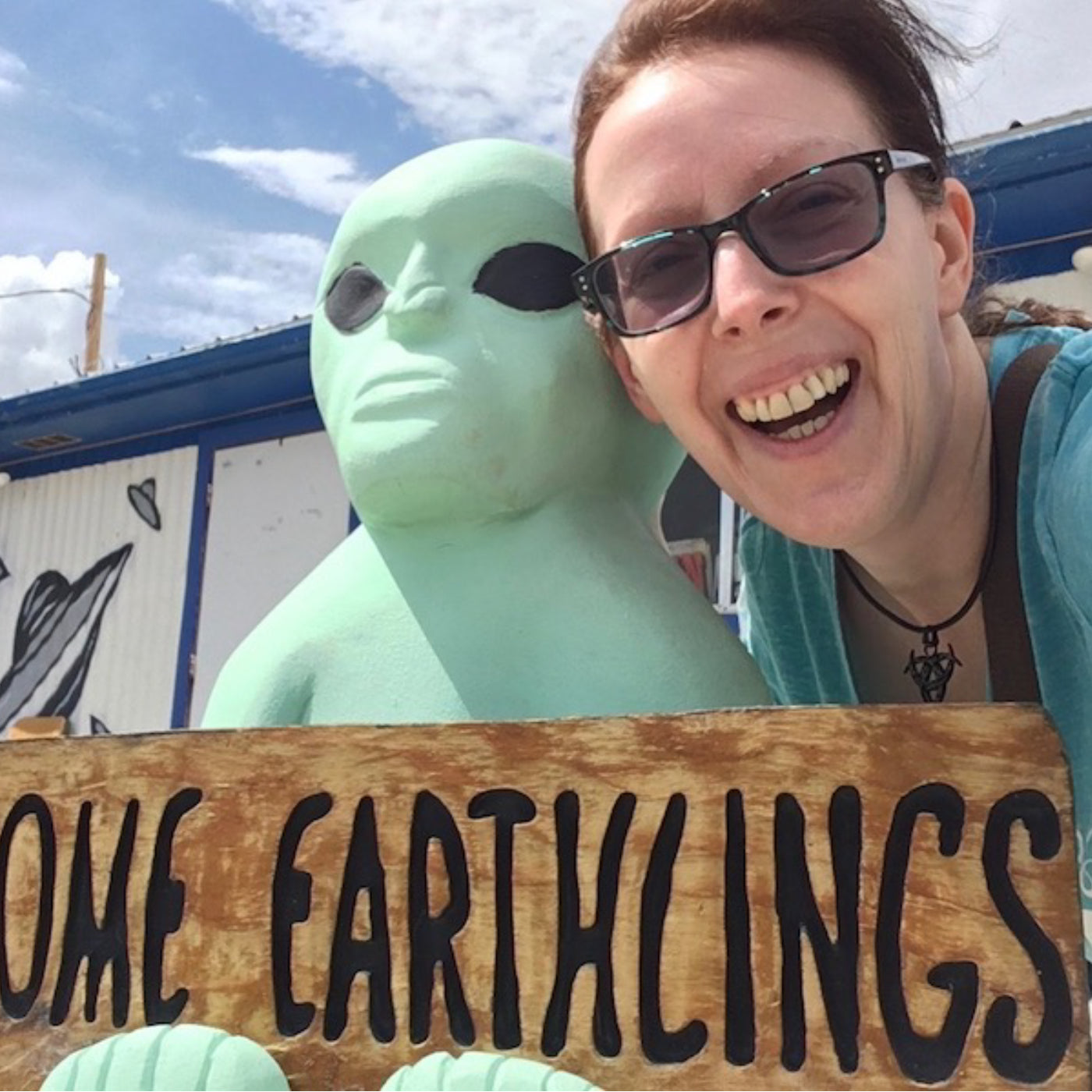
Michelle Ann King
Continue reading

Get Issue Updates
Promotions, new products and sales. Directly to your inbox.


